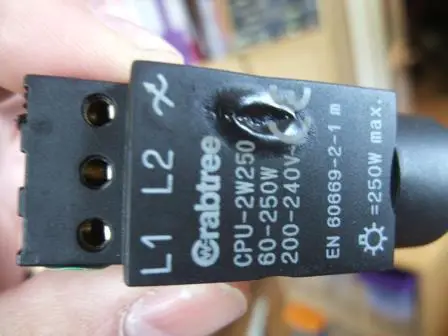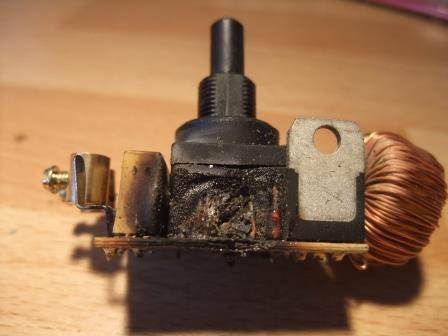Hi all, I have a rotary dimmer switch that controls three wall lights. Each light is a 60 Watt BC standard filament type, so total load 180W. One of the lamps went the other day and took the dimmer out along with it. The dimmer was a Crabtree CPU 2W250, rated 60-250W with a push-on/push-off switch and looking at it there is an internal component that has overheated (the fuse?) and the switch no longer functions mechanically. The wiring has live and switched live at the switch and was connected to the terminals with the wavy line and L1.
The only cause that I can think of for this occurring is the lamp blowing, as I replaced the lamp and used a new dimmer and all seems ok. This doesn't seem normal to me though, as I can understand maybe a fuse in the dimmer blowing, but not the switch as well. I read in a six year old old post while searching the forum that:
The lamp may be cheap, but is Crabtree a good make? The dimmer itself is only about 6 months old as it was a replacement for a very old dimmer that finally gave up after about 20 years. What else could cause this to fail?
The only cause that I can think of for this occurring is the lamp blowing, as I replaced the lamp and used a new dimmer and all seems ok. This doesn't seem normal to me though, as I can understand maybe a fuse in the dimmer blowing, but not the switch as well. I read in a six year old old post while searching the forum that:
Cheap lamps kill cheap dimmers when they fail.
The lamp may be cheap, but is Crabtree a good make? The dimmer itself is only about 6 months old as it was a replacement for a very old dimmer that finally gave up after about 20 years. What else could cause this to fail?



